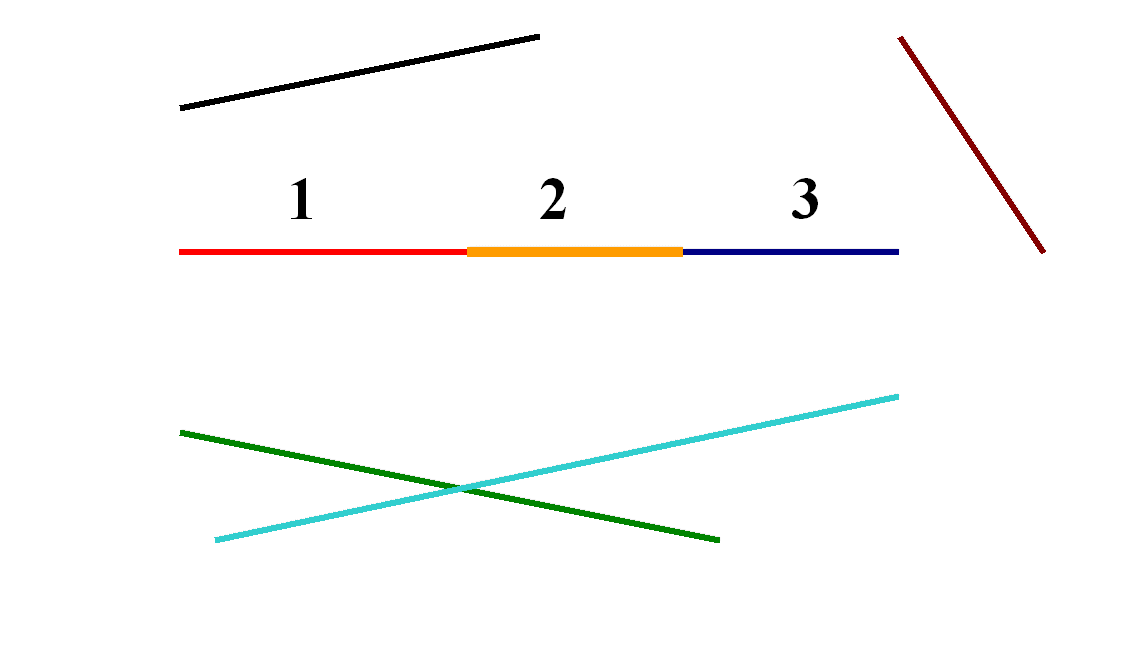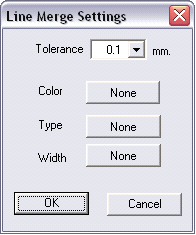Merging Interrupted Lines
Home > 09 Editing and Manipulation > Merging Interrupted Lines
Merging Interrupted Lines
Use this command to simplify a model composed of lines, by merging the segments:
Extending in an uninterrupted way.
Overlapping exactly
Being very close to each other.
\lmerge
Applying the Merge
You can apply this function by choice on:
A Full Model
This function merges all the lines of a model according to the parameters defined in the dialog box of Line Merge (see below)
The Selection Group
This function merges all the lines of a selection group according to the parameters defined in the dialog box of Line Merge (see below)
A Line
This function merges all the lines that overlap or coincide with the indicated line or extends it according to the parameters defined in the dialog box of Line Merge (see below)
Line Merge Dialog Box
The dialog box of Line Merge contains two categories:
|
|
Tolerance In this pulldown list, you can set the error of merge between 1 mm and 0,001 mm. The absolute error will not exceed the set merge. Any line situated near another at a greater distance than specified, will not be merged with the later. Attributes You can use any combination of values according to the merge principle that you wish to apply: |
Principles of Merge
The system processes the given 2D model by detecting the line groups that can be combined into a single segment as per the following criteria:
Location
The segments in a group forming a continuous line are merged on priority.

Segments 1, 2 and 3 form a group that can be represented by a continuous line.
Priority of Attributes
 IMPORTANT: The three priorities of color, type and thickness are not set by default. In this case, all the contiguous or overlapping segments must have the same attributes in order to be merged in a single line.
IMPORTANT: The three priorities of color, type and thickness are not set by default. In this case, all the contiguous or overlapping segments must have the same attributes in order to be merged in a single line.
When you set the priorities, the lines are constructed in two steps:
First, the system verifies for each segment whether it can be included in a group of segments that are overlapping or continuous, without considering its attributes.
Then, the group of segments is analyzed in order to verify if there exists at least one segment with the line attributes that you have defined. If such a segment is found, the line formed by combining the segments then takes its attributes. If not, the segments will not merge.

